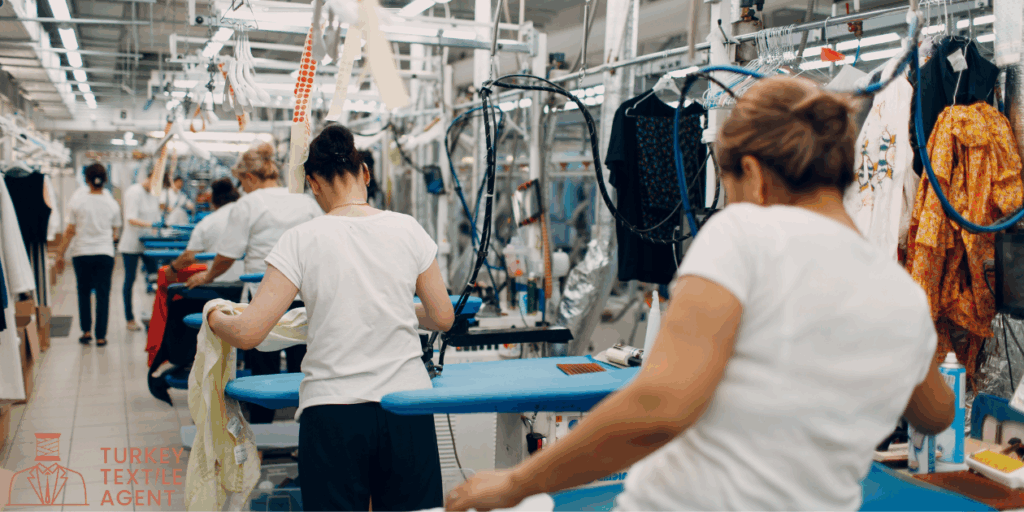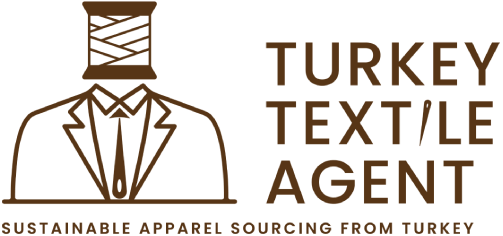In today’s global marketplace, ethical and sustainable production practices are becoming essential for businesses striving to meet the growing demand for socially responsible manufacturing. Turkish factories, with their rich history and advanced infrastructure, are making remarkable strides in ethical and sustainable production, setting new standards for global manufacturing. This article delves into how Turkish factories are ensuring ethical and sustainable production practices, shaping the future of responsible manufacturing.
The Rise of Ethical and Sustainable Practices in Turkish Manufacturing
Turkey, strategically positioned between Europe and Asia, is home to one of the world’s most dynamic textile industries. Known for its centuries-old heritage in weaving, Turkish factories have seamlessly integrated modern technologies and sustainable practices into their production processes. Over the past decade, there has been a concerted push towards ethical and sustainable manufacturing across industries, particularly textiles, apparel, and furniture production. The need for ethical production has become paramount in the face of environmental concerns, labor rights, and consumer demand for greater transparency.
Understanding the Ethical and Sustainable Manufacturing Landscape
Ethical production refers to manufacturing processes that consider the welfare of workers, the environment, and society as a whole. It encompasses fair wages, safe working conditions, and respect for human rights. Sustainability, on the other hand, emphasizes minimizing the negative environmental impact of production, reducing waste, and using renewable resources.
In Turkey, several factors contribute to the country’s growing commitment to ethical and sustainable production:
- Government Regulations and Support: Turkish authorities have implemented a range of regulations to ensure that manufacturers follow ethical and sustainable practices. These include incentives for adopting green technologies, tax breaks for sustainable initiatives, and stringent labor laws to protect workers’ rights.
- Consumer Demand for Transparency: Global consumers are becoming more conscious of the ethical and environmental implications of their purchasing decisions. Turkish manufacturers are responding to this demand by increasing transparency and showcasing their commitment to ethical and sustainable practices.
- Global Certification Standards: Turkish factories have increasingly adopted international certifications such as ISO 14001 (Environmental Management), Fair Trade, and Global Organic Textile Standard (GOTS). These certifications are essential for demonstrating adherence to global ethical and sustainable standards.
Key Areas of Focus in Ethical and Sustainable Production in Turkish Factories
1. Sustainable Sourcing of Raw Materials
One of the most critical aspects of sustainable production is the sourcing of raw materials. Turkish factories have made significant efforts to source materials from environmentally responsible suppliers. For instance, in the textile sector, many factories are switching to organic cotton, recycled fibers, and eco-friendly dyes. Organic cotton, grown without pesticides and synthetic fertilizers, reduces the environmental footprint of cotton farming and provides a healthier option for workers involved in cultivation.
Additionally, Turkish manufacturers are increasingly turning to recycled materials, such as post-consumer plastic bottles, to create sustainable textiles. This practice not only helps reduce waste but also conserves natural resources by reusing existing materials.
2. Water Management and Conservation
Water consumption is a major concern in the textile industry, which is known for its heavy use of water during dyeing and finishing processes. Turkish factories are implementing water-saving technologies and adopting more efficient water management practices. Many factories are installing closed-loop water systems, which recycle water throughout the production process, reducing waste and ensuring that water is used efficiently.

Furthermore, advanced wastewater treatment systems are being employed to treat and recycle water before it is released back into the environment. This helps prevent water pollution and minimizes the impact on local ecosystems.
3. Energy Efficiency and Carbon Footprint Reduction
Reducing energy consumption and minimizing carbon emissions are fundamental goals in the pursuit of sustainable production. Turkish factories are increasingly investing in renewable energy sources such as solar panels, wind turbines, and bioenergy. These alternative energy sources not only help reduce dependence on fossil fuels but also contribute to a cleaner, more sustainable manufacturing process.
In addition to renewable energy, energy-efficient technologies like LED lighting, smart thermostats, and automated systems are being adopted to optimize energy usage across factories. By implementing these measures, Turkish manufacturers are not only lowering their carbon footprint but also reducing operational costs, making their production more cost-effective.
4. Fair Labor Practices and Worker Welfare
Ethical production is not just about environmental sustainability; it also involves ensuring that workers are treated fairly and work in safe, healthy conditions. In Turkey, labor laws have been strengthened over the years to protect workers’ rights. Turkish factories are adhering to international labor standards, ensuring that employees receive fair wages, work reasonable hours, and have access to safe working environments.
Many Turkish factories also provide workers with additional benefits, such as healthcare, education, and housing, to improve their overall quality of life. This commitment to worker welfare is not only a moral obligation but also a key selling point for brands and consumers seeking ethically produced goods.
5. Waste Reduction and Circular Economy Practices
A critical aspect of sustainable production is the reduction of waste throughout the manufacturing process. Turkish factories are increasingly adopting waste reduction strategies, such as lean manufacturing and zero-waste initiatives, to minimize excess materials and energy consumption.
Moreover, the concept of a circular economy is gaining traction in Turkish manufacturing. In a circular economy, products and materials are reused, refurbished, and recycled at the end of their life cycle, reducing the need for raw materials and minimizing waste. Turkish manufacturers are exploring ways to design products that can be disassembled and repurposed, promoting a more sustainable, waste-free production model.

6. Transparency and Traceability in the Supply Chain
Transparency is a cornerstone of ethical production, and Turkish factories are embracing technology to track and trace their supply chains from start to finish. Blockchain technology and supply chain management systems are helping manufacturers provide detailed information about the origins of their materials, the conditions under which they were produced, and the environmental impact of each stage of the production process.
By providing consumers with access to this information, Turkish manufacturers are building trust and proving their commitment to ethical and sustainable practices. This transparency is increasingly important in a market where consumers are demanding greater accountability from the brands they support.
Benefits of Ethical and Sustainable Production in Turkish Factories
1. Competitive Advantage in the Global Market
As consumers become more aware of the environmental and social implications of their purchasing decisions, businesses that prioritize ethical and sustainable production practices gain a competitive edge. Turkish factories that adopt sustainable practices are more likely to attract ethically-conscious consumers, boosting their reputation and sales.
2. Long-Term Cost Savings
While transitioning to sustainable production practices may involve initial investment, the long-term cost savings are significant. Energy-efficient technologies, waste reduction strategies, and renewable energy sources help reduce operational costs over time. Moreover, the shift towards sustainable sourcing can mitigate the risk of fluctuating raw material prices, ensuring a more stable supply chain.
3. Contribution to Global Sustainability Goals
By embracing ethical and sustainable production, Turkish factories are playing a vital role in achieving global sustainability goals, such as those outlined by the United Nations Sustainable Development Goals (SDGs). These efforts contribute to the global fight against climate change, resource depletion, and labor exploitation.
4. Improved Brand Image and Customer Loyalty
Brands that prioritize ethical and sustainable practices enjoy stronger customer loyalty and brand advocacy. As consumers increasingly choose brands that align with their values, Turkish factories that focus on sustainability and ethical production are positioning themselves as industry leaders and trendsetters.
Conclusion: The Future of Ethical and Sustainable Production in Turkish Factories
The future of Turkish manufacturing looks promising as factories across the country continue to innovate and adopt ethical and sustainable production practices. By embracing sustainable sourcing, efficient resource management, fair labor practices, and cutting-edge technology, Turkish manufacturers are setting a global standard for responsible manufacturing. As the demand for ethical products grows, Turkish factories are poised to lead the charge towards a more sustainable and ethical future in global production.

